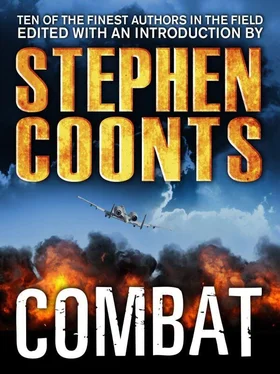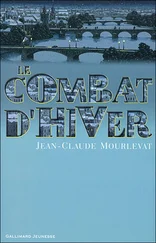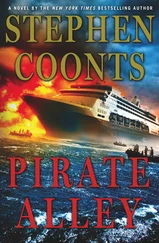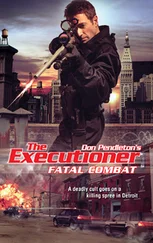“Not mutually exclusive. You’ve never been married, have you,” Quent said. He began again: “Robert Rooney, acting as agent for the hereafter-named person putting up bail …”
I squatted there until Quent had finished explaining that Rooney was, by God, the property of the bondsman named and could be pursued even into his own toilet without a warrant, and that his physical condition upon delivery to the appropriate county jail depended entirely on his temperament. When Quent was done I said, “He may not even hear you.”
“He probably does, but it doesn’t matter. I hear me,” Quent said mildly. A bounty hunter with liberal scruples was one for the books, but I guess Quent wrote his own book.
“How far is your car?”
“Two blocks. Here,” Quent said, and handed me the derringer with one unfired chamber. I knew what he said next was for Rooney’s ears more than mine. “You can shoot him, just try not to kill him right away. That’s only if he tries to run again.”
“If he does,” I said, “I’ll still have his scalp for an elephant’s merkin.”
Quent laughed as he hurried away, not even limping. “Now there’s an image I won’t visit twice,” he said.
* * *
Twenty minutes later we returned from the county lockup with a receipt, and to this day I don’t know what Bobby Rooney’s voice sounds like. The reason why those kicks hadn’t ruined Quent’s legs were that, under his suit pants, my pal wore soccer pro FlexArmor over his knees and shins for bounty hunting. He’d suggested Original Joe’s to Dana because, among other good reasons, Rooney’s ex-girlfriend claimed he hung out there a lot. Since Rooney was dumb as an ax handle, Quent figured the chances of a connection were good. He could combine business with pleasure, and show a pair of Feds how efficient we were. Matter of fact, I was so efficient I wound up with a derringer in my pocket. Fortunes of war, not that I was going to brag about it to the Feds.
Dana and Reuben Medler were still holding down the booth when we returned, Medler half-resigned, half-amused. Dana was neither. “I hope your victim got away,” she said. If she’d been a cat, her fur would’ve been standing on end.
Quent flashed our receipt for Rooney’s delivery and eased into the booth. “A simple commercial transaction, Agent Martin,” he said, ignoring her hostility. “My apologies.”
She wasn’t quite satisfied. “Can I expect this to happen again?”
“Not tonight,” Quent said equably.
It must’ve been that smile of his that disarmed her because Dana subsided over coffee and dessert. When it became clear that Quent would take the San Francisco side — it has a sizable Korean population — while I worked the Oakland side of the bay, Reuben Medler told me where I’d find the Ras Ormara, moored on the edge of Richmond near a gaggle of chemical production facilities.
Eventually Dana handed Quent a list of the crew with temporary addresses for the few who went ashore. “Sonmiani’s California rep keeps tabs on their crews,” she explained. “I got this from Customs.”
Medler put in, “Customs has a standard excuse for wanting the documentation; cargo manifest, tonnage certificate, stowage plan, and other records.”
“But not you,” I said to Dana.
She shook her head. “Even if we did, the Bureau wouldn’t step forward to Sonmiani. We leave that to you, although Sonmiani’s man in Oakland, ah, Norman Goldman by name, has a clean sheet and appears to be clean. We feel direct contacts of that sort should be made as — what did you call it, Quentin? A simple commercial transaction. Civilians like to talk. If Goldman happened to mention us to the wrong person, the ship’s captain for example, someone might abort whatever they’re up to. If they see you rooting around, they’ll assume it’s just part of a routine private investigation.”
Maybe I was still pissed that our teen mascot had become our boss. “Implying sloth and incompetence,” I murmured.
“You said it, not I,” she replied sweetly. “At least Mr. Goldman seems well enough educated that he would never mistake you for an agent.”
“You’ve run a check on him, then,” said Quent.
“Of course. Majored in business at Michigan, early promotion, young man on the way up. And I suspect Sonmiani’s Islamic crew members will watch their steps around a bright Jewish guy,” she added, looking over the check.
Quent drained his teacup. “We’ll try to keep it simple; Park Soon could show up tomorrow. Then we’ll see whether we need to talk with this Goldman. Is that suitable?”
Quent asked with genuine deference, and Dana paused before she nodded. It struck me then that Quent was making a point of showing obedience to his boss. And his quick glance at me suggested that I might try it sometime.
I knew he was right, but it would have to be some other time. I shook hands again with Reuben Medler, exchanged cards with him, and turned to Dana. “Thanks for the feed. Maybe next time we can avoid a floor show.”
She looked at Medler and shook her head, and I left without remarking that she had a lot of seasoning ahead of her.
It was Quent’s suggestion that I case the location of the Ras Ormara itself, herself, whatever. Meanwhile he made initial inquiries across the bay alone in his natural camouflage, in the area everyone calls Chinatown though it was home to several Asiatic colonies. It was my idea to bring my StudyGirl to record a look at this shipshape ship we’d heard so much about, and Quent suggested I do it without making any personal contacts that required I.D.
StudyGirls were new then, cleverly named so that kids who wanted the spendy toys — meaning all kids — would have leverage with Dad and Mom. Even the early versions were pocket-sized and would take a two-inch Britannica floppy, but they would also put TV broadcasts on the rollout screen or play mini-CDs and action games, and make video recordings as well. It was already common practice to paint over the indicator lights so nobody knew when you were videorecording. I’ll bet a few kids actually used them for schoolwork, too.
I took the freeway as far as Richmond, got off at Carlson Boulevard, and puzzled my way through the waterfront’s industrial montage. Blank-fronted metal buildings with ramped loading docks meant warehousing of imports and exports, and somewhere in there were a few boxcarloads of Peruvian balsa logs. Composite panels of carbon fiber and balsa sandwich were much in demand at that time among builders of off-road racers for their light weight and stiffness. I enjoyed a moment of déjà future vu at the thought that I might be using some of the Ras Ormara ’s balsa for my project in a few months.
Unless my woolgathering got me squashed like a bug underfoot. I had to dodge thrumming diesel-electric rigs that outclamored the cries of gulls and ignored my pickup as unworthy of notice. Hey, they were making a buck, and this was their turf.
In a few blocks-long stretches, the warehouses gave way to fencing topped with razor wire, enforced isolation for the kind of small-time chemical processing plants that looked like brightly painted guts of the biggest dinosaurs ever. Now and then I could spot the distant San Rafael Bridge through the tanks, reactor vessels, piping, and catwalks that loomed like little skeletal skyscrapers, throwing early shadows across the street. You knew without a glance when you were passing warehouses because of the echoes and the sour, last-week’s-fast-food odor that drew those scavenging gulls. The chemical production plants no longer stank so much since the City of Richmond got serious about its air. And beyond all this at an isolated wharf, berthed next to a container ship like a racehorse beside a Clydesdale, the Ras Ormara gleamed in morning light. I wondered why a ship like that was called a “she” when it had such racy muscular lines, overlaid by spidery cargo cranes and punctuated by the gleam of glass. I pointedly focused on the nearby container vessel, walking past an untended gate onto the dock, avoiding flatbed trucks that galumphed in and out. I had my StudyGirl in hand for videotaping, neither flourishing nor hiding it. In semishorts, argyle socks, and short sleeves, I hoped I looked like a typical Midwestern tourist agog over, golly gee, these great big boats. If challenged I could always choose whether to brazen it out with my I.D.
Читать дальше












